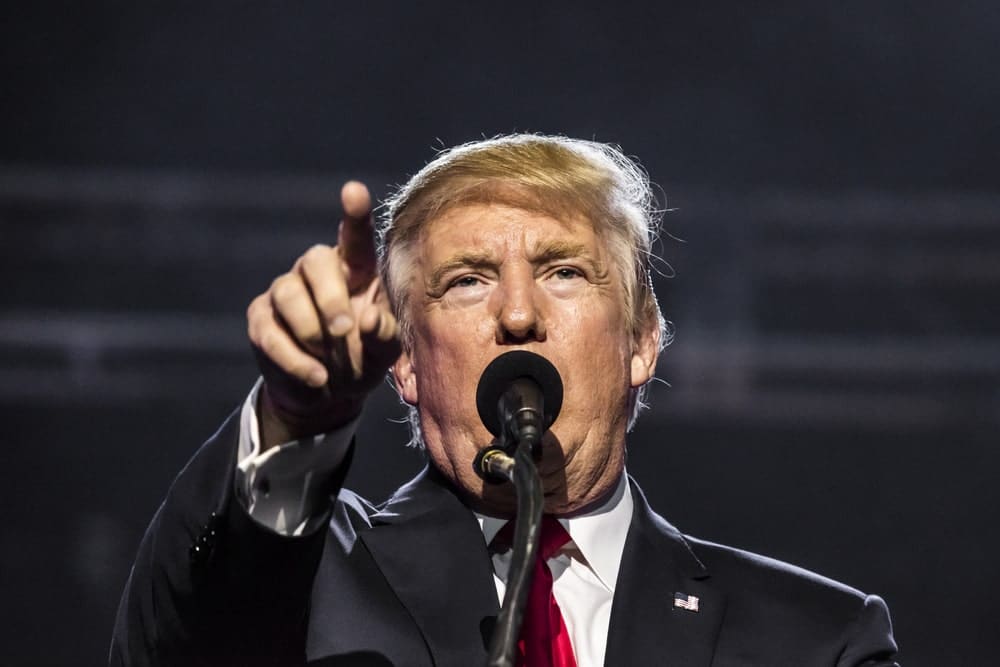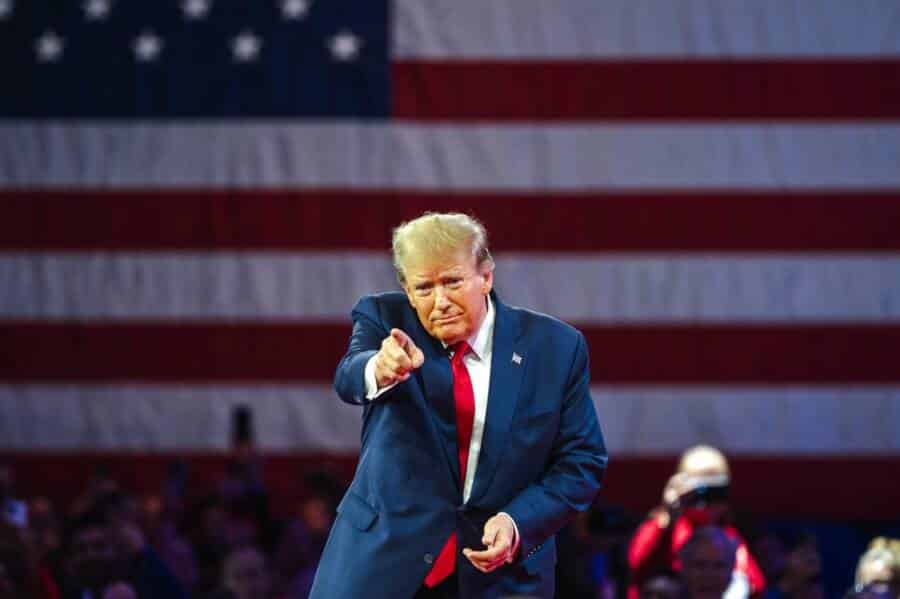Americans who are very close to retirement and those who recently retired stated they were very anxious and frustrated following a second day of market turmoil that deeply hit their 401(k) after President Donald Trump’s escalation of tariffs.
As the impending tariffs took the global economy by surprise, people who were diligently planning for their retirement accounts to carry them throughout their golden years declared that this economic chaos hit way too close to home.
Some also said that they decided to pause big-ticket purchases and reconsider home renovations, while others stated they really fear their quality of life could be negatively impacted by all this turmoil.
“I’m really stunned, and with all this money in the market, we need to hope we will have enough time to recover,” as Paula, 68, a former occupational health professional in New Jersey, stated.

Paula was only able to talk about the matter on the condition of anonymity, since she feared retaliation for speaking out against Trump administration policies, stating that she was worried about what lies ahead. “There’s no confidence in the future,” she said, expressing her fears.
So far, Trump definitely fulfilled his campaign promise, unleashing sweeping tariffs, including on the United States’ largest trading partners, in a move that only sparked fears of a global trade war. The decision sent the stock market spinning.
On Friday afternoon, the broad-based S&P 500 closed down at 6%, the tech-heavy Nasdaq dropped 5.8%, and the Dow Jones Industrial Average fell over 2,200 points, or 5.5%.
As Wall Street reeled right after the tariff implementation, and after China hit back with another set of tariffs against the United States, millions of Americans with 401(k)s watched their retirement funds diminish, alongside the stock market.
“I looked at my 401(k) this morning. In the last two days, I lost $58,000. That’s quite stressful,” said Victor Fettes, 54, who retired last week as a senior director of risk management and compliance at Verizon. “If this keeps going on, I can’t stay retired.”
Trump also stated that the tariffs will force many businesses to relocate manufacturing and production back to the United States, as well as bring back jobs. Some investors and business groups tried to push back on that, stating that they are likely to lead to higher prices for United States consumers.
“Our country has been looted, pillaged, raped, and plundered by nations, both friend and foe alike,” Trump declared recently. “It won’t happen anymore.” The president ultimately acknowledged the potential pain inflicted on Americans and their financial well-being. Nevertheless, he keeps staunchly defending his agenda.
After implementing the tariffs, he posted on his social media platform, Truth Social: “MY POLICIES WILL NEVER CHANGE; ONLY THE WEAK WILL FAIL.”
And then, he changed the tariffs. But this is a story for another time.
His tariffs are definitely steeper and more widespread than any other ones in modern American history. They also have the potential to be much broader than the ones applied in 1930, when historians believe the tariffs only worsened the Great Depression. Some Americans who were planning their retirement told NBC News that they believe their economic stability is being played with.
Many retirees believe they shouldn’t be involved in the ongoing machinations of the economy. Others expressed how much anxiety they have been living with recently, describing how there’s nothing they can currently do, and they also don’t know what will happen.
She and her husband have ultimately decided to pause and reduce spending on big-ticket items. They also reconsider vacations and home renovations. “We can’t really change anything at the moment, except our spending.
I am sure there are many consumers across the board who exercise caution right now, too. Then, it only becomes a vicious cycle; consumer confidence goes down.” Paula expressed. One in five Americans who are 50 years old and over has no retirement savings.
More than half of them are worried they won’t have enough money to support them in retirement, according to a survey published by the AARP last April.
Benajah Cobb, 63 years old, with a steady job in the theater industry, declared that everything that’s been happening makes you realize how out of touch the current administration is when it comes to regular people. He also said that he hopes the last few days of stock market turmoil will motivate lawmakers to put more checks and balances on the president.

How can you handle the 401(k) retirement fund?
As mentioned above, stocks have dropped precipitously. There is ongoing talk of a looming recession. Moreover, the vast majority of retirement accounts have lost their value, especially since President Donald Trump introduced a cornucopia of tariffs last week, sending markets into nothing less than a tailspin. At a time when moving huge sums of money and buying or selling investment products is really as easy as a mouse click, investment experts keep saying the same thing over and over again. The more they say it, the more it becomes out of touch with reality.
“Don’t panic. Stay the course. If you need to take money out of your retirement account, take just enough to cover your expenses until the market gets better.”
Super helpful. They don’t talk too much about how you can’t truly plan such a downturn, so it’s equally difficult to efficiently time a recovery.
In all honesty, the most efficient preparation for a downturn needs to be done years in advance. We’re talking about five or 10 years away from retirement to start depending less on stocks as the backbone of a retirement portfolio.
Many targeted funds do this already, meaning gradually mixing more bonds and fixed income products into a stock-heavy portfolio, especially as a retirement date is close by. Growth might not be as high, but neither is the risk of a loss such as the 9.6% drop that the S&P 500 has seen recently.
The benchmark index had a roller-coaster day on Monday, closing only slightly down, compared to the steep losses marked after the implementation of tariffs. While Trump initially said he’s not considering pausing his recently imposed tariffs, he did.
Asked about the mixed messages on this subject from White House officials, he told reporters at the Oval Office that there can be permanent tariffs, and there can also be negotiations, since there are other things that America needs, beyond the tariffs, such as open borders.
What should you do if you are about to retire?
For those who are on the cusp of retirement and who would be in dire need of their 401(k) or IRA right away, they might want to push the retirement date off by a couple of months, and check if the stock market recovers. For retirees, so much depends on their financial situation.
Will they live off their retirement savings? Is it used to supplement another type of income? Do they rarely tap into it? So many investors out there treat their retirement account as a savings account.
They keep transferring money into it without actually paying attention to what’s invested in there. Moreover, there’s an increasing tendency for investors to stick to what really works. There’s some sort of inertia: we have made money in the stock market, so let’s keep it there.
If you found this article useful, we also recommend checking: News About Medication Price Cuts: Medicare Announces Lower Prices










